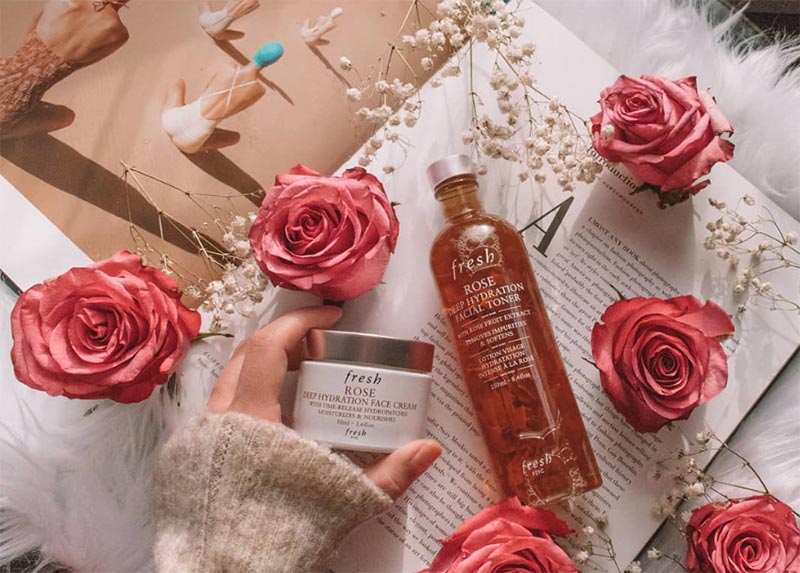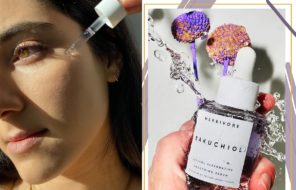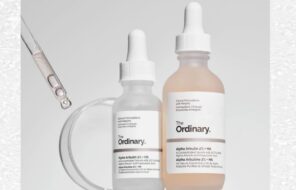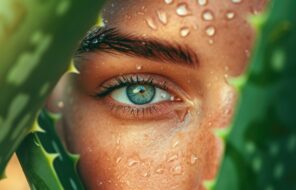From wrinkle creams to sunscreens, there exist so many different anti-aging products advertised as the best, but how do you know which one will work for your own skin type? In this article, we explain what kind of anti-aging products and treatments exist, and how to choose the best ones for your specific skin type.
In this article:
What Kind of Anti-Aging Products Exist
Using the right anti-aging products is the first step to getting rid of wrinkles and preventing premature skin aging. But what products should you go for?
Sunscreens
Face sunscreen is by far the most anti-aging of all of the anti-aging products out there – even the cheapest sunscreen is more important than the most expensive anti-aging wrinkle creams without an SPF. All of the anti-aging treatments in the world are totally useless if one is not also protecting their skin from the sun.
If this sounds extreme, consider the fact that the bulk of visible skin aging that is not related to genetics is caused by sun exposure, especially in those that don’t expose their skin to other free radical sources like pollution or cigarette smoke.
Just looking at all the avid tanners you know who are over 40 – their skin is usually visibly less firm and more wrinkled than the skin of those who avoid the sun. Research done in Montpellier in France on just under 300 women showed that the women categorized as “sun seeking” based on their sun exposure habits had skin that showed more signs of aging than the skin of women who were categorized as “sun phobic”.
By wearing sunscreen on a regular basis, you can seriously slow down the visible signs of aging. These days you can find sunscreens in all kinds of formulas, including two-in-one moisturizers, primers, or even foundations.
There are also quite a few sunscreens out there that contain other excellent anti-aging ingredients, for a comprehensive effect. To get the full effect of the sunscreen it is important to apply enough of it – I go into more details about that later on in the article.
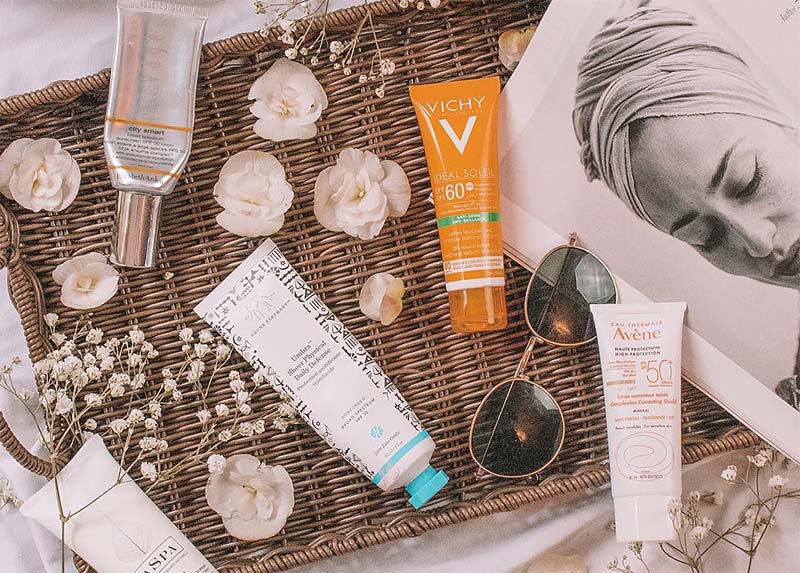
Anti-Aging Creams/ Moisturizers
Moisturization is extremely important for treating signs of aging in the short term. Even the most basic moisturizer will have an anti-aging effect, since by loading the skin up with moisture you can instantly plump it up, making wrinkles and fine lines significantly less pronounced.
Additionally, well hydrated skin functions better and acts as a more effective barrier, so by moisturizing regularly you can keep your skin healthy, thereby preventing inflammation and keeping the skin cells functioning regularly. This is an important part of preventing premature aging.
Beyond this, though, moisturizers can be excellent tools for loading the skin up with additional anti-aging ingredients like antioxidants, collagen builders, and even skin resurfacers. In the daytime, a moisturizer with an SPF can work double duty to prevent premature aging and to reverse its effects.
Anti-Aging Toners, Serums, and Essences
I’ve grouped these three types of anti-aging products together because in their anti-aging form they serve the same kind function in a skincare routine. Toners, serums, and essences may vary in texture, but they are all much lighter than a typical moisturizing cream, and as such they sink into the skin more quickly and are better suited to delivering potent anti-aging ingredients.
Those with oily skin who are concerned about premature aging might even choose to use an anti-aging serum or essence instead of a moisturizer!
While one can certainly get away with only using a facial cleanser and moisturizer or a cleanser and serum, there are some serious benefits to layering skincare products of various textures. First, this is an easy way of loading the skin up with more comprehensive hydration. Second, it is a better way of combining various actives in one skincare routine.
Trying to get all of your vitamins, exfoliants, and peptides from one product is possible, but you will get bigger benefits from each ingredient if they come separately. For example, you can use a serum with vitamin C and AHA, and then afterwards use a moisturizer with vitamin A, peptides, and niacinamide for more thorough anti-aging benefits.
These days there are a ton of hydrating and anti-aging toners on the market, but you will still find highly astringent toners that might even include alcohol. These will usually be advertised as “mattifying,” “pore minimizing,” or “skin tightening.” Anyone wanting to prevent extrinsic aging should avoid these kinds of toners, as they can seriously dehydrate the skin.
Anti-Aging Cleansers
Anti-aging cleanser is a bit of an odd phrase, since a cleanser cannot really deliver powerful anti-aging ingredients to the skin. This is because cleansers are only in contact with the skin for as long as it takes them to break down impurities.
While there is no need to splurge on cleansers that contain expensive peptides or delicate antioxidants, a good cleanser is still important. Harsh cleansers that contain sulfates or disrupt the skin’s pH can harm the skin and prevent it from functioning well, while a gentle cleanser can keep the skin clean yet hydrated, and ready for absorbing leave-on anti-aging products.
Oil cleansers are great for those with maturing skin, as are gentle, humectant-laden, sulfate-free cleansers with a pH between 4.5 and 5.5.
Anti-Aging Eye Products
In my opinion, it is perfectly acceptable to use a moisturizer around the eyes, although that doesn’t mean that eye creams don’t have an important space in an anti-aging skincare routine.
The skin around the eyes is thinner and more delicate than the skin everywhere else on the face, so it tends to show age before other parts of the face. Additionally, the area surrounding the eyes tends to show signs of aging in slightly different ways. Fat deposits can build up below the eyes or, alternatively, because of the thinness of the skin there, the area can appear dark.
Eye creams will usually have a gentler formula free of high percentages of potentially sensitizing ingredients like retinol or AHA. Instead, their anti-aging effect will come from blends of skin-tightening anti-inflammatories for puffiness, antioxidants for protection, and skin rebuilders for thickening up the skin.
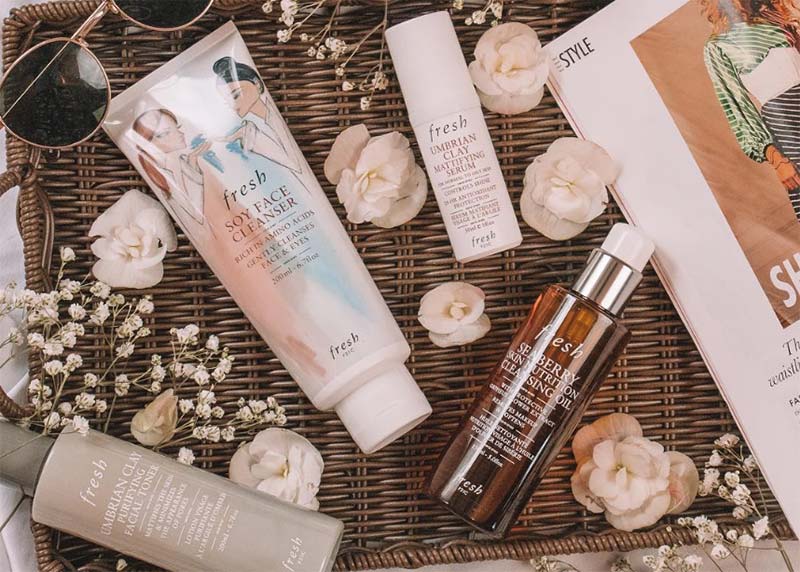
Choosing Anti-Aging Products for Every Skin Type
Based on your skin type, this are what anti-aging products you should introduce in your routine:
Anti-Aging Products for Dry Skin
Those with dry skin see very little oil production throughout the day, and their pores tend to be on the smaller side. As we age, our oil glands tend to become less and less active, which is why most older people have drier skin. For women this is especially true after menopause.
In the case of a lot of skincare brands, anti-aging is seen to be directly correlated with dry skin, which is why a lot of anti-aging products are very creamy and moisturizing.
When searching for anti-aging skincare products for dry skin types, chances are you won’t have a hard time finding products that are a good fit! Most anti-aging moisturizers and serums will suit your skin types, and you are likely to find out that layering products is especially beneficial for you.
It is very important that you wear sunscreen in the daytime, although sunscreens and moisturizers with an SPF might not give you enough hydration, so definitely apply a serum or moisturizer before applying your sunscreen – just make sure to give everything enough time to sink in before applying any additional layers.
Look for leave-on anti-aging skin care that contains a lot of humectants and antioxidants. With your skin type gentle cleansers are particularly important, and you should avoid dehydrating skincare products with SD alcohol or ethanol.
Anti-Aging Products for Normal and Combination Skin
Those with normal and combination skin see a moderate production of oil in their skin. Those with normal skin will have medium sized pores all over their face, while those with combination skin will have smaller pores in some parts of their face and larger pores elsewhere. Combination skin is very common, especially from the late-twenties to mid-forties, while normal skin is extremely rare.
As with all other skin types, only using gentle cleanser is very important for keeping the skin looking healthy and youthful. Finding the right anti-aging moisturizers and serums can be a little tricky, as you want anti-aging products that will strike a balance between moisturizing the skin sufficiently without ever making it feel greasy.
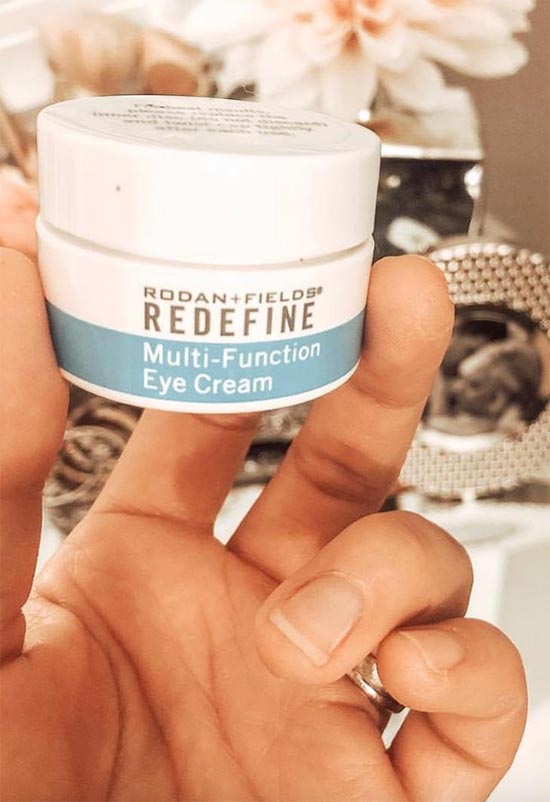
You may find that a nourishing serum provides enough moisture for most of your skin, while only the drier parts require a moisturizer. Mixing a moisturizer and serum together in the palm of your hand before applying is also a great way of controlling exactly how heavy what you put on your skin is.
In the daytime, chances are you will not need a serum or moisturizer under your sunscreen.
Anti-Aging Products for Oily and Acne-Prone Skin
Oily skin can be recognized easily, as the oil glands are overactive so the skin turns shiny very quickly after it’s been washed. Those with oily skin also have larger pores, usually, and their pores tend to get clogged more easily, leading to blackheads, whiteheads, and pimples.
Not everyone who has oily skin suffers from acne, nor do all people who experience breakouts have oily skin. However, the two come hand in hand often enough that I decided to combine the two sections.
While a lot of anti-aging products are simply too greasy for those with oily skin, these days there are increasingly more lightweight, non-comedogenic options as well. First things first, look at texture descriptions for anti-aging products in order to understand how light or greasy they might be.
You want to use light products that will sink into the skin quickly without leaving an oily sheen. Light oils like rosehip or sunflower are okay to use, even with oily skin, but avoid creams with heavier oils like mineral oil, particularly in the daytime. While mineral oil will not cause breakouts, it does leave the skin looking greasy.
Many people with oily skin find that the best way for them to prevent extrinsic aging is to use anti-aging serums in conjunction with a skin-mattifying beauty routine. They can use serums or an essence instead of creams, or use serums below light moisturizers for oily skin. Every once in a while, they can use a clay-based mask for a mattifying deep cleanse, and layer anti-aging products afterwards.
There are a lot of products made for acne-prone skin that also provide an anti-aging effect. I’ve previously mentioned vitamin A, a skin-repairing and retexturizing ingredient that helps to reverse the visible signs of aging. This ingredient is also often recommended for clearing up acne, and its strongest version, tretinoin, is often prescribed by dermatologists both for age prevention and for acne treatment.
Salicylic acid, or BHA, is a chemical exfoliant that is frequently recommended for treating acne and clogged pores, but also resurfaces the skin to promote healthy functioning. Vitamin C can help to brighten up any hyperpigmentation left behind after a pimple, and it can also help to protect the skin from free radical damage and to promote collagen production, especially when paired with vitamin E and ferulic acid.
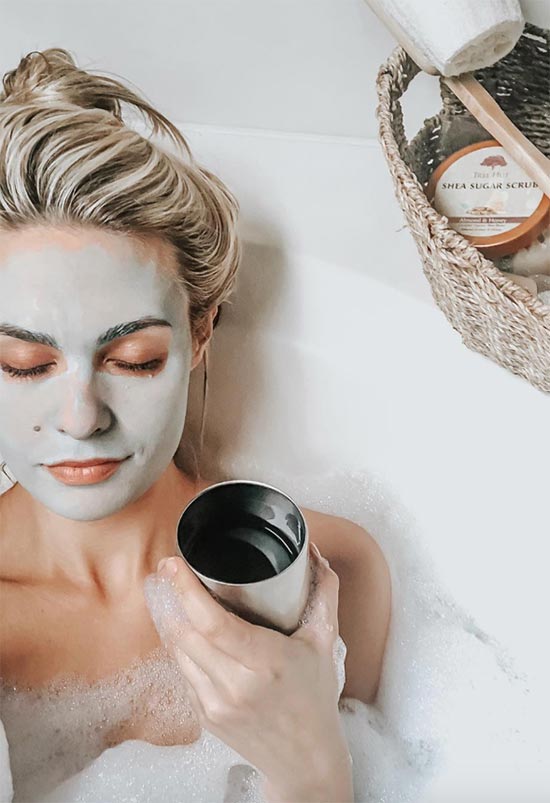
Anti-Aging Products for Sensitive Skin
Those with sensitive skin have to be the most careful when choosing anti-aging products for them. If your skin gets red, irritated, or itchy easily then that’s a sign of sensitive skin. Signs of sensitivity can show up after exercising, being out in harsh weather, drinking alcohol or spicy food, or because of the use of harsh skincare products.
Sensitive skin can be caused by specific skin conditions like rosacea or eczema, as well, but this advice would apply regardless of the cause of the sensitivity. I am not recommending the types of products that will eliminate sensitivity, but products that will help prevent extrinsic aging without causing any irritation – hopefully they can even soothe the skin.
Look for anti-aging products that do not contain unnecessary skin sensitizers like sodium lauryl sulfate or excessive fragrance. Some essential oils can also be irritating to the skin, although others find that essential oils like chamomile can actually calm their skin. Read product reviews to see if anyone complains about developing a rash or irritation after using it.
Exfoliation is an important part of anti-aging routine, but using physical exfoliants is much likelier to irritate sensitive skin. While glycolic acid might cause your skin to tingle, especially the first time you use it, salicylic acid and lactic acid are less likely to do so, especially if you use them at lower percentages and with higher pHs.
Some sources say that you cannot use chemical exfoliants if you have sensitive skin, but that’s not true – you just want to be careful. Other ingredients you might want to avoid, or only use carefully at very low percentages or only a few times a week include retinol, vitamin C, and other resurfacers.
Once you’ve picked out a few anti-aging products you’d like to try, it’s very important you patch test them to ensure your skin can tolerate them. This means applying the product to a small patch of skin, either on the face or the forearm, and seeing how your skin responds. You can do this for a few days in a row if you’re worried about cumulative use causing irritation, which can happen with fragrances.
Photos via @ymorbeauty, Instagram

